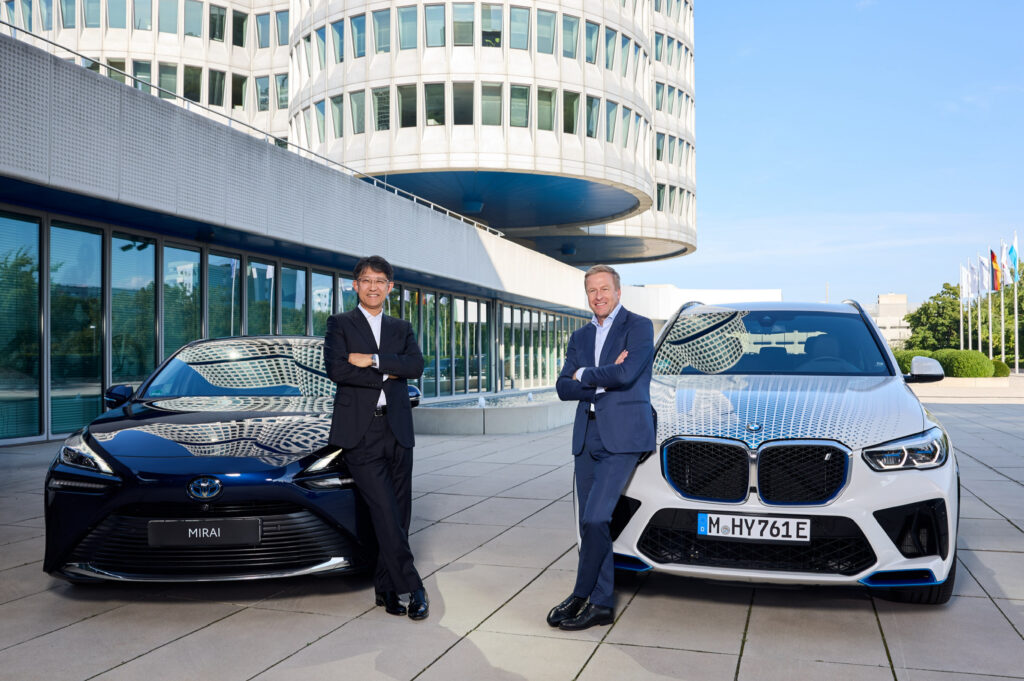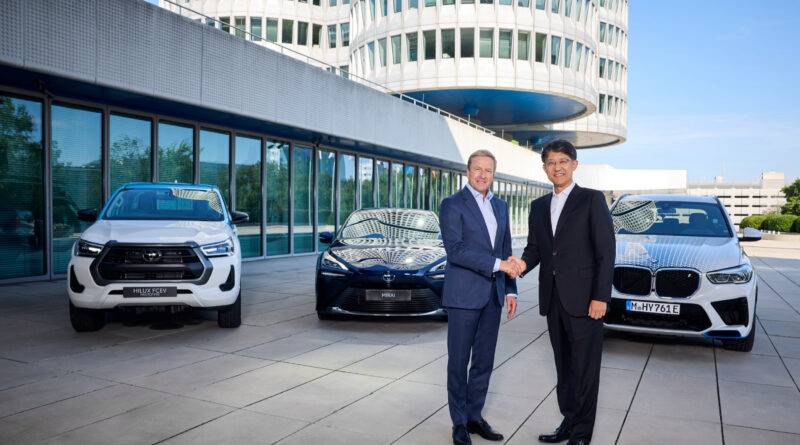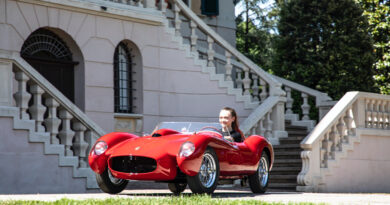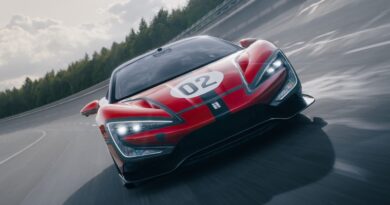Toyota takes next step to hydrogen-powered Hilux, LandCruiser in landmark deal with BMW that will see the luxury brand launch an FCEV in 2028
A hydrogen-powered Toyota Hilux and LandCruiser is one step closer to showrooms following an extension of the collaboration with BMW to jointly develop fuel cell electric vehicle technology.
The deeper collaboration will also see BMW produce its first FCEV production vehicle in 2028 as it looks to ramp up the transition to zero emissions motoring by offering multiple zero emissions options rather than focussing solely on battery electric vehicles.
Acknowledging that “the future is electric”, the vice president of hydrogen vehicles at BMW, Dr Michael Rath, said hydrogen would play a role in the Group’s energy transition.
READ MORE: BMW joins the fuel cell race with hydrogen-powered iX5 in Australia
READ MORE: Water tight: Hyundai Nexo could be the start of big H2 things
READ MORE: Toyota Hilux hydrogen fuel cell prototype boasts long range and rapid refilling
“We are convinced that hydrogen will play an increasingly important role also in passenger cars.”
BMW argues that hydrogen has many advantages, including fast refuelling times, the ability for those without off-street parking to drive zero emissions cars and the ability to utilise renewable energy after the sun has stopped shining or the wind blowing.
BMW and Toyota today released details of the collaboration that will see them “jointly develop the powertrain system for passenger vehicles, with the core fuel cell technology (the individual third-generation fuel cells) creating synergies for both commercial and passenger vehicle applications”.
In a joint press release the two companies said the announcement would “expand the range of FCEV options available to customers”.
For Toyota – which already sells the Mirai FCEV in small numbers in some markets – the obvious choice for hydrogen fuel cell tech is commercial vehicles and four-wheel drives that are designed to tow and cover big distances.
The LandCruiser, Prado and Hilux would no doubt be on the hit list – and in announcing the deal Toyota president Koji Sato included a prototype Hilux FCEV, reinforcing the possibility that it could be one of the models to adopt future fuel cell technology..
BMW chairman Oliver Zipse says the arrival of BMW FCEVs will “herald an era of significant demand for fuel cell electric vehicles”.

And while there will be sharing of the fuel cell components, Zipse said the brands would maintain differentiation.
“Customers can expect the BMW and Toyota FCEV vehicles to maintain their distinct brand identities and characteristics,” he said, adding that the collaboration on development of the complex and expensive fuel cell system “promises to drive down the costs of fuel cell technology”.
BMW says it will offer its first FCEV in dealerships from 2028 and that it would be based off an existing model.
The company is not saying which model it will be or whether the car will be sold in Australia, although it has previously said it wanted to explore the potential for hydrogen vehicles locally.
“Although we are interested in offering a BMW FCEV to our customers, it is too early to confirm specific plans for their introduction in Australia,” said BMW Australia in a statement.
While many car makers are focussing their zero emissions efforts solely on battery electric technology, BMW and Toyota are two of a handful of brands still investing heavily in hydrogen fuel cell tech.
Each believes hydrogen can play a role in the future electrified automotive world, especially when it comes to heavier duty vehicles that need to travel big distances.





Can I suggest it won’t happen. Hydrogen FCEV for road transport doesn’t make sense today; even less so in 3-4 years time. Using energy (electricity), which can turn the wheels of a BEV at 85% efficiency, and investing in all that infrastructure to produce green hydrogen (the alternative of methane steam reforming would be environmentally criminal) to power an uncompetitive FCEV, at something like 30% efficiency, is… nuts…